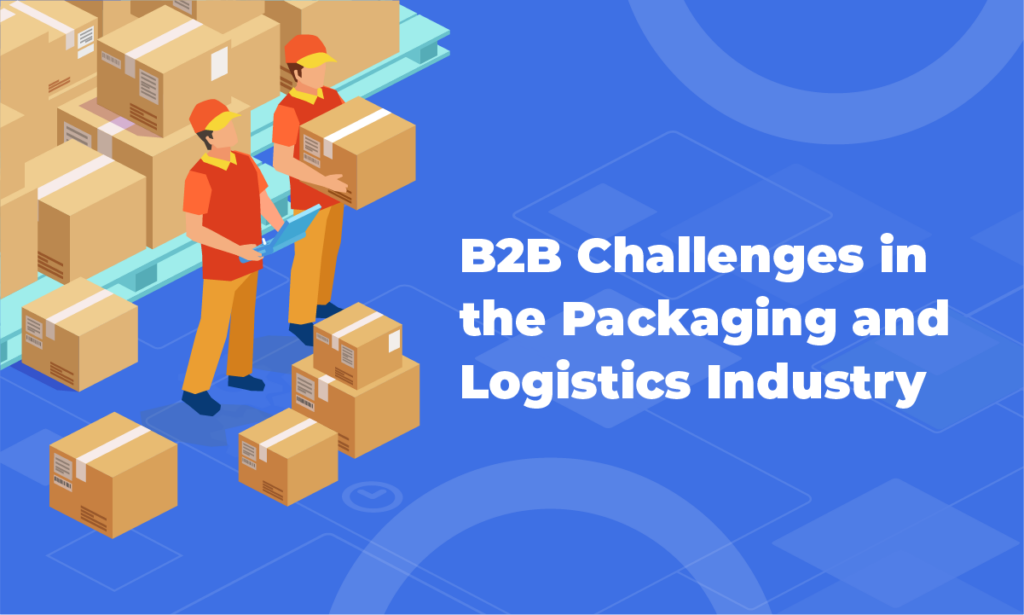Many companies have realized that selecting a business-to-business (B2B) ecommerce platform will be their next important decision as they look forward to a post-coronavirus future.
Ecommerce is no longer simply an easy alternative to placing an order with your sales representative, sending an email or making a telephone call. Many organizations now recognize that ecommerce will play a key strategic role in their business.
The changing B2B world
Whether your B2B business has been hesitant about ecommerce or you are now ready to upgrade your online offer, 2021 is the ideal time to move ahead. More people than ever are using digital channels to research products and they expect to be able to complete part or all of their purchase online.
Your B2B ecommerce platform can help you to sell, manage customer relationships, fulfill orders, receive payments and send invoices. When you take a strategic approach to your choice of ecommerce platform you will also be able to innovate and grow as the marketplace changes.
Over 15% of all B2B sales in the US will be via ecommerce by 2023. B2B buyers expect the same seamless purchasing experience that they receive from online retailers.
As millennials play a growing role in purchasing processes, your key considerations must include online discovery, mobile devices and round-the-clock purchasing. The quality of their online experiences will affect their professional decisions. By making B2B buying easy and engaging you will secure a competitive advantage.
Optimize your business processes
Choosing the right ecommerce platform for your business will depend on your current needs and future goals. You won’t want to lose the momentum you have achieved in your business so far, but you don’t want to be held back by your existing systems, so your choice should be based on clearly defined plans and strategy.
Integration with your other business systems will give you a complete view of everything from inventory management to financial controls. You can reduce manual data entry to minimize mistakes and improve customer satisfaction. With the right approach to search engine optimization and conversion you can increase your sales and build your brand.
Importantly, using the latest techniques and technology you can deliver customer experiences that will help to build long-term loyalty.
Your ecommerce platform choices
If your business is highly security conscious you might consider building, hosting and managing your own in-house solution. You will need to buy the equipment and software, take responsibility for all aspects of security and compliance and have the skills needed to maintain and develop your platform. This can represent a significant overhead for your business, and it can be challenging to keep up to date with the latest innovations and security risks.
With open-source options (like Woo Commerce for WordPress) you have control of development and design of your site, and you will be responsible for ongoing maintenance, including security upgrades. You will need a server to securely host your site and capacity to run and manage it on a day-to-day basis.
Platform as a Service (PaaS) providers like Magento and Hybris give you hosting and infrastructure, while you have control over your ecommerce site. Many companies like this combination of in-house control and third-party support.
A software as a service (SaaS) platform like Cloudfy is an increasingly popular alternative. You can have the latest ecommerce features and regular updates in the cloud, normally available for a monthly fee. You won’t have to invest in equipment, installation, security, compliance, maintenance or high-level in-house expertise.
B2B ecommerce features
Easy to use While B2B transactions are longer and more complex than retail purchases, your buyers will expect their ecommerce experiences to be just as easy. They will want to find clear, relevant and accurate information quickly; site searches should be intuitive and ideally include product suggestions and recommendations. Buyers want personalized experiences and access to their previous purchase history with easy reorder and payment options.
Self-service Buyers want to manage their transactions themselves, with the option to speak with sales, support and customer services representatives whenever they want. Then they might choose to hand over the rest of the purchasing process or finalize the details online themselves. Ideally they will be able to access shipping details, quote approvals, order tracking, favorites lists and previous purchases.
B2B workflows With up to ten people involved in B2B buying decisions, offering a tailored workflow which makes it easy for each person to play their part will add to the value of your online experience. You can also offer customers PunchOut as an option that will allow them to manage the purchasing process within their own systems. The order will only be placed when all their internal approvals have been completed.
Mobile friendly Buyers are increasingly using mobile devices for work-related research and purchasing, so your site performance on these devices should be as good or even better than the desktop experience. It will need to be fast, because if your pages take more than three seconds to load your visitor will probably have moved on already. It will also need to be configured for mobile taps and swipes as well as clicks. Your content must be easy to see and use on mobile devices and ordering and checkout processes need simple.
Payment options B2B payments can range from single small purchases to high-value repeat orders. You should be able to manage flexible payment options such as partial payments or credit arrangements via your ecommerce platform.
Catalog management Your product information needs to be accurate, useful and up to date. Your content management system should be easy to use and flexible with its own product information management (PIM) tools. Depending on your needs you might also want the option to integrate with PIM and inventory management systems.
How to choose your B2B ecommerce platform
Build your business case on the basis of your medium- and long-term goals as well as the return on investment you are looking for. Include some realistic measurements like site traffic, conversion rates and average order values as well as factors like improved efficiency.
Review the requirements of your customers to understand how your choice of platform can add significant value to your buyers’ journeys and help to create a competitive advantage for you.
Make sure everyone affected by your choice has an opportunity to offer ideas and recommendations to give you a complete view of the risks and benefits your choice will involve.
Assess where your business is unique and how you could benefit from the latest and best technology to move forward. With powerful application programming interfaces (APIs) customization no longer needs to be a costly and time-consuming process.
We understand that you will want to fully review your options and invite you to explore what Cloudfy can offer you. Please get in touch to book a free Cloudfy demonstration.





